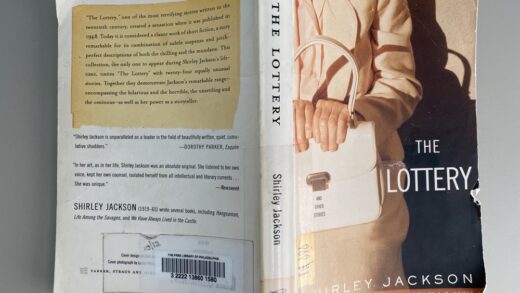On a surmise that there must be a beach on the island to which she is coming, our still nameless narrator—even at this point in Cynthia Ozick‘s 1966 novel Trust where she has just made the acquaintance of Henry David Thoreau Purse and his equally literarily-named siblings whom one might well believe would in turn ask what the narrator’s name is—narrates:
“…if I had assumed a beach it was because of that other shipwreck in my brain,[/]
(Trust, 495)
where early early[/]
and from the start[/]
I had figmented a sandbar the color of gold,[/]
and a yellow shoal glowering with mist,[/]
and rocking there a figure tugged[/]
and secreted like a sculpture by tide,[/]
or like the raised effigy on a coin of some overrun civilization,[/]
the lineaments of its caesar’s profile swathed in undersea moss,[/]
the eye of a rubbed freckle,[/]
the noble nose worn to a snub,[/]
conquest sea-dyed pale dead tan.[/]
My father’s body lay in my brain,[/]
and in the same sea-vessel[/]
yet elsewhere on still another beach[/]
the body of my governess spread itself flat on a flat rock,[/]
sporting motionless;[/]
and here is the lizard of my father’s tread, crouching;[/]
and Palestine burning;[/]
while beyond, in the water, as they join,[/]
a book opens wings without lungs and drowns.
I beg your pardon for my editorial additions to Trust, but there are so many obstacles to reading, which is not to begin to account for all of the obstacles to reading well!

So I have added [/]
poetic line endings.
That point about reading well presents the sort of clarity that I understand alcoholics enjoy at certain moments. How have I repeatedly enjoined simply reading without distinguishing it from reading well?!
Reading—simply reading—the above passage is difficult, even for the person who has consumed 494 pages of Trust, and this because the connection of the narrative with this passage are at best tenuous and at worst wildly elliptical.
But then, reading well that passage seems a herculean effort!
I am especially drawn to the last line in which a “book opens [its] wings” but because it lacks “lungs” it “drowns.”
Dazzled.



